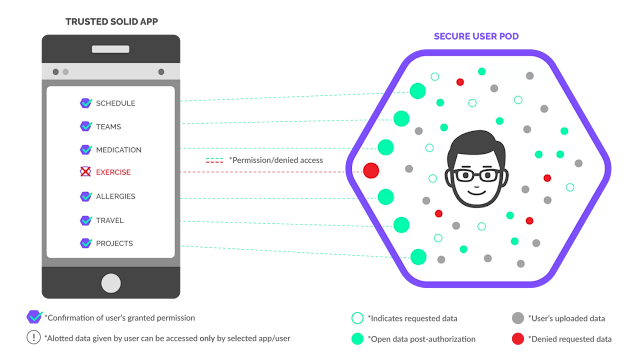Online Data Privacy

… for those who understand it, yes, ‘Online Data Privacy’ sounds like a joke in just three words now.
Recently, WhatsApp – a leading mobile/web chat application owned by Facebook sent a notification to all its users with a revision to its usage policy that almost sounded of WhatsApp reserving the entire rights to share information to Facebook. This created a buzz in social media and press. There was outrage, fear and threat of moving out of the application to ones that seem better with data privacy and security. Some unpopular companies and applications even shot to fame overnight in this commotion.
Over the years, from the days when the internet started initially as a fantastic tool to freely share information to now, the current state where it is a quite commonly used phrase – Data is the new oil
Oil wells are owned by big corporations and royals, tapped and enriched to be sold at a premium. It is the basic fuel essential for the industrial world that depends on IC Engines.
The internet has evolved explosively to become a medium that generates possibly the highest number of earnings opportunities globally. From cottage industries, small scale to mega sized conglomerates cannot scale without being online today. Through the evolution process of the net, it is realized that owning the data and controlling the patterns gives the power to move the markets.
The platform business model by itself, though may have existed as a concept earlier is now in the center of many of the tech startups’ revenue model. In fact, a good percentage of the ‘tech giants’ make their money applying this model. xyz aggregator businesses: Stripped to its bones means building a platform to bridge supply and demand of a product/commodity/service and earn a small share on the transactions. Added with the launch of personal assistant robots, conversational devices that can listen to its environment, it opened up the opportunity to virtually have watch-towers built throughout the world to record the browsing patterns, preferences, interests, purchases and even interaction information of every user straight from within the private confines of their home at their cost. Now, this information when gathered over time becomes a gold mine of data for analysts to run through their predictive and analytical models. These models are like beautifully forged hammers waiting for nails to be tried, trained on before being tweaked and re-designed to solve a multitude of complex problems like genetic engineering, quantum physics or NLP. The solutions cannot see the light of day unless they are tried on various combinations of real life data related to the problem statement. Thus, data ends up becoming the center of the modern money world.
As how the Oil cartels operate, the internet has slowly slipped into the hands of a cartel of handful of Tech superpowers who have almost mastered the art of acquiring user and usage data for almost free, if not paid by the user themselves and turn the data into useful information that could be monetized in multiple ways. Given the speed of innovation and computation capabilities, the sky is the limit for this business, as long as the flow of ‘crude’ data is available to be tapped into.
Given improved realization of this and ever growing uneasiness of people about privacy and security, inconspicuous efforts towards gaining back the control of consumer data are picking up attention.
While there are quite a few concepts and experiments going on how to decentralize user data. One of them that I picked interest on is of the concept of PODS (Personal Online Data Store) by Sir Tim Berners-Lee. Name rings a bell, sad if it did not. He is none other than the one who invented the world wide web. He thinks where the internet is now, is not where he wanted it to be. Through the project Solid at MIT, he is looking at getting back the control of people’s data into their hands. Everyone having the decision power of sharing their data to anyone. A drastically opposite direction of data ownership compared to today. Something very hard to be seen as NOT being a better thing than where we are.
It is hard for me to stop drawing a parallel to the oil business even here. What Tim is attempting is like the battery revolution of Elon Musk and the electric cars. An outright threat to the super rich oil cartels. Something that majority of the consumers will see as a better place to be.
While electric vehicles seem to be ahead in the curve with adoption at scale already at a good pace. Will have to wait to see if decentralized and producer ownership of data can become a reality, beating OR forcing the tech cartel who thrive on it to change their ways.

